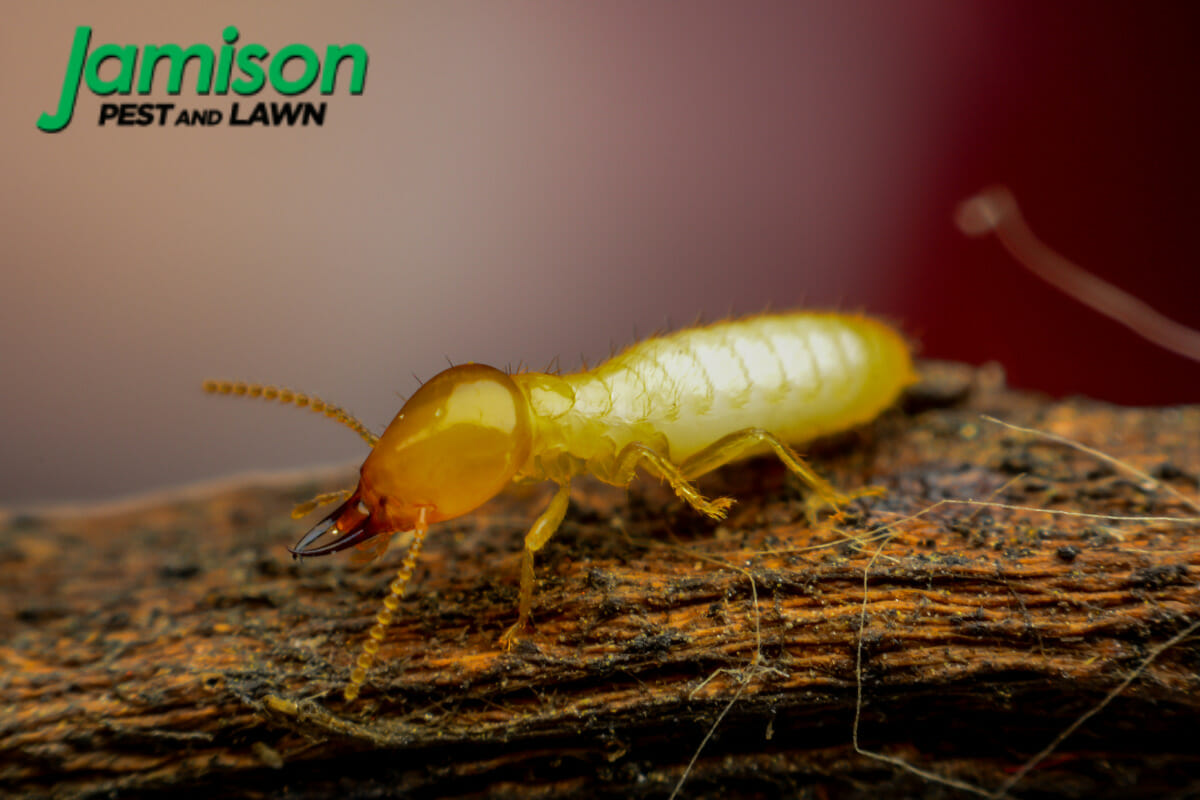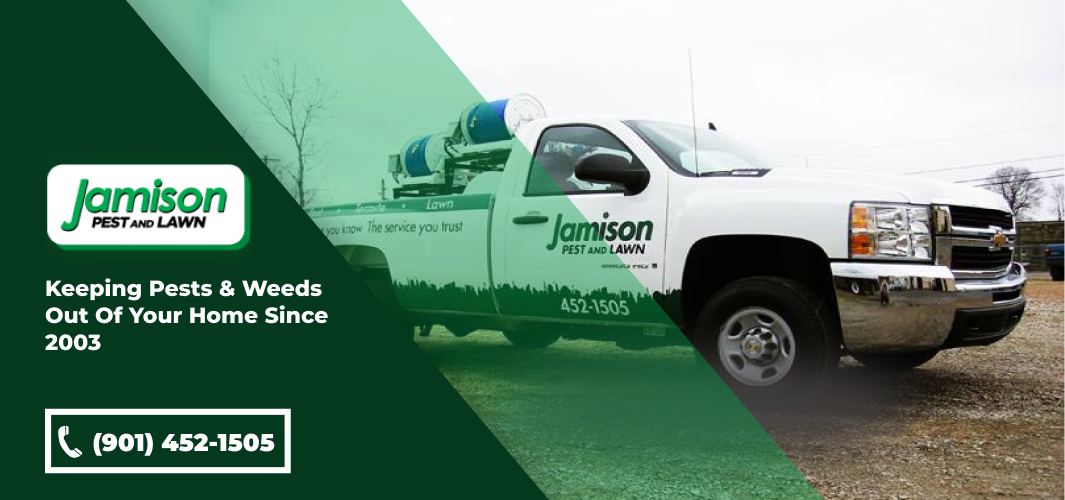Are you considering building a new home in Tennessee? If so, you may be concerned about termite prevention and treatment. Termites can cause extensive damage to wooden structures that can be extremely costly to repair. Fortunately, there are several new construction termite treatments available that offer you effective protection against these destructive pests. This article will explore the pros and cons of each option, and the cost comparison of each type of treatment.
We’ll cover all aspects of new construction termite treatments. From liquid treatments to baiting systems, we’ll discuss which options are most effective at eliminating termites and which ones you should buy. With this information in hand, you can assess the type of treatment that suits your needs best and start enjoying peace of mind knowing your home is safe from destructive pests!
Termites: An Age-Old Threat To New Constructions
Termites are social insects that live in large colonies and feed on cellulose found in wood and other plant materials. They are known for their ability to cause significant structural damage to buildings by eating the wooden elements of construction. There are several species of termites, and they can vary in size, color, and behavior. However, all termites have the potential to cause harm to buildings if left unchecked.
At Jamison Pest and Lawn, we have been dealing with different kinds of termites for years and use effective solutions so that termites stay away from your Tennessee home.
It is important for potential homeowners or contractors to understand the benefits and limitations of each type of termite treatment, so they can make an informed decision. Knowing which option is best suited for your particular situation can save you time, money, and stress in the long run. With the right information, you can ensure your home is properly protected. So let us jump to the core of our blog post.
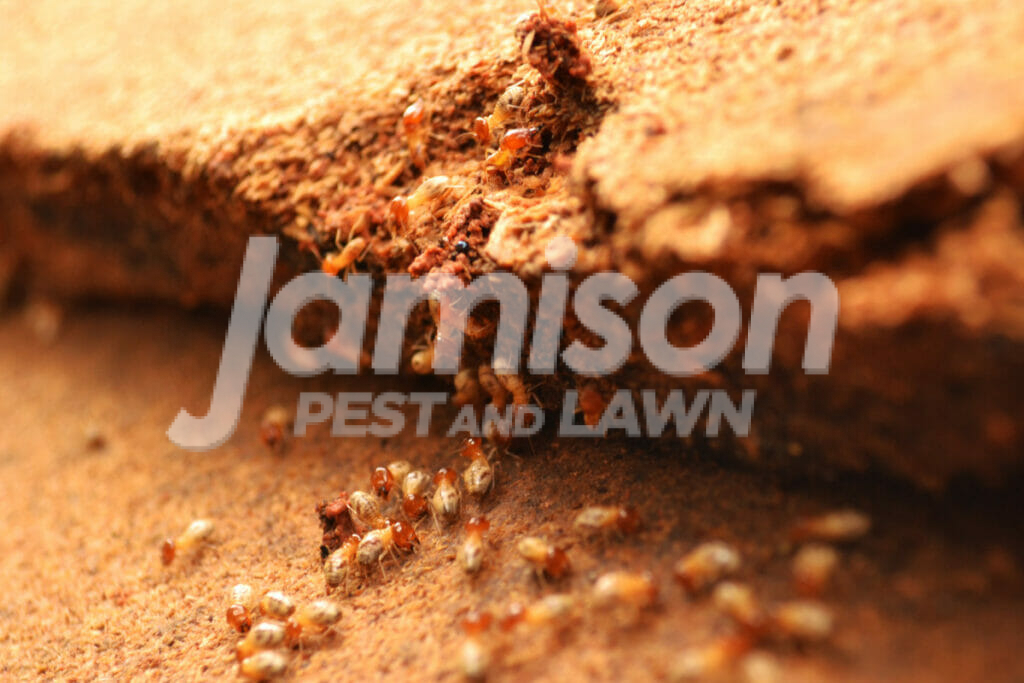
Pre-Construction Treatment Options
Pre-construction termite treatment refers to the measures taken to prevent termites from infesting a building before construction begins, or during the early stages of construction. This is done by applying termite treatment methods to the soil, wooden elements, or other parts of the building.
Chemical Soil Barrier
Chemical barriers are a popular method for termite treatment for new construction. This technique involves applying a termiticide around the perimeter of the building and into the soil to create a barrier that prevents termites from entering the structure. You will notice that there are different types of chemical barriers. They work by either killing termites that come in contact with the treated soil, or by repelling them away from the building.
Pros Of Chemical Barriers
Long-Lasting:
Chemical barrier solutions can last longer than most other treatment methods. Some of these solutions also come with effective warranties, so you need not worry about their effectiveness in the long run.
Cons Of Chemical Barriers
Professional Expertise Required:
Chemical barriers may seem easy to apply, but they usually aren’t. The barrier will be ineffective if the application is not made correctly, so ensure you hire a professional who knows where, and how much, needs to be sprayed.

Physical Barriers
Physical barriers are a popular new construction termite treatment option due to their straightforward nature. This method requires installing a physical barrier, such as metal mesh, between the soil and the building’s structure, which is designed to prevent termites from entering the building.
Note that these barriers may not be effective in all environments since they rely on an intact barrier between soil and structure to work correctly. Additionally, if these barriers become damaged or disturbed over time, there is no way to detect this without regular inspections of the area. For instance, if the foundation of your home settles and moves, this barrier may become damaged.
Physical barriers offer a convenient and cost-effective option for treating new construction against termites. However, it is essential to remember that regular inspections of the barrier are critical to ensure its integrity over time.
Pros Of Physical Barriers
Physical barriers are an effective way to protect a structure from termite infestations. Let us look at some of the advantages of using this termite treatment for new construction.
Long-Term Protection:
One benefit of using physical barriers is that they offer long-term protection against termites. Once installed, these barriers can remain in place for many years without needing to be replaced or maintained.
Can Perfectly Complement Other Treatment Methods:
Additionally, physical barriers can be used with other treatments, such as chemical sprays, making them an effective part of integrated pest management plans. You’ll feel especially protected if you have a combination of another form of treatment paired with a physical barrier.
Environmentally Friendly:
Physical barriers do not release chemicals into the environment, making them a safer option for those who are concerned about environmental impacts.
Budget-Friendly:
Despite the upfront costs associated with installation, physical barriers are often cheaper than chemical treatments over time due to their longevity and lack of maintenance needs. In many cases, this makes them an economically viable option for long-term termite control.
Cons Of Physical Barriers
Requires More Effort:
One of the major downsides of these barriers is that installing them requires some effort and cost upfront. This includes excavating around the perimeter of the structure, which can be time-consuming and expensive depending on the size and area of the new construction, and the type of barrier being used.
Plus, if there is existing damage from termites, it may need to be repaired before any barrier can be installed, which adds to the cost and labor requirements.
Post-Construction Treatment Options
Now, let us move to the next part of the process, known as post-construction treatment options. As the name suggests, this termite treatment refers to the measures taken to eliminate or prevent termites from infesting a building after construction has been completed. This phase involves the following:
Liquid Treatment
Liquid termite treatment refers to applying a liquid pesticide to the soil around and under a building to eliminate or control termites. The liquid pesticide creates a barrier that prevents termites from entering the building and reduces their ability to damage it. This method is often used as a preventative or remedial measure against termite infestations.
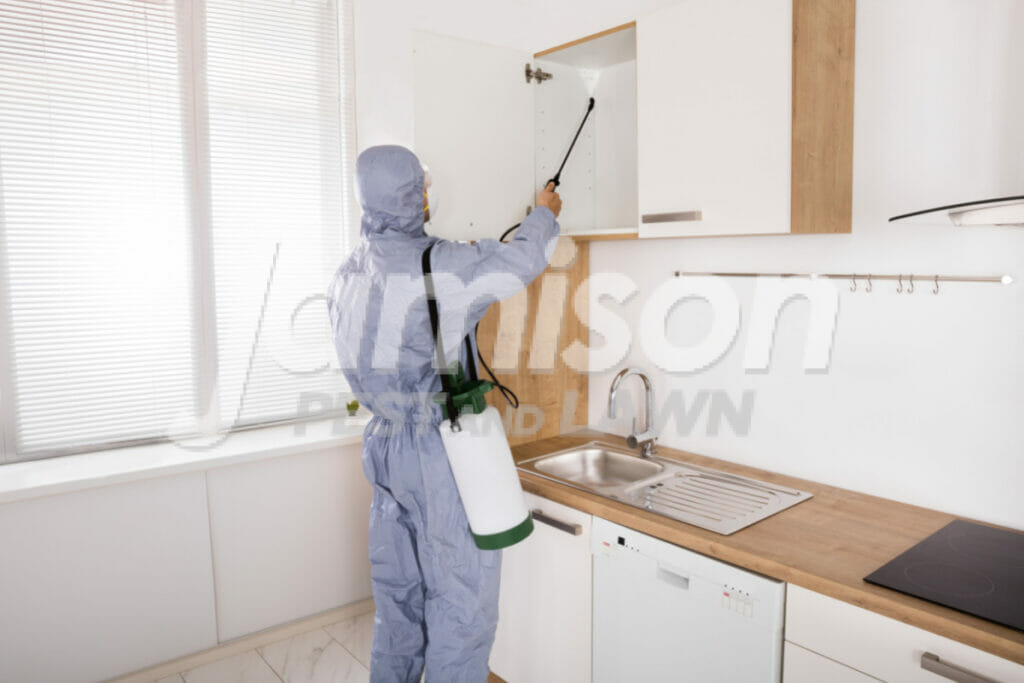
Baiting Systems
A baiting system involves setting up stations around the foundation, which contain bait designed to attract and kill any termites that come into contact with them. Baiting systems can be more expensive than soil treatments. Still, they provide an additional layer of protection against infestations since they can detect signs of termites before they enter the structure. Additionally, baiting systems typically only require maintenance once or twice per year to remain effective.
These systems involve placing bait stations around a structure and then monitoring the stations for termite activity.
Pros Of Termite Baits
When it comes to new construction termite treatment options, baiting systems are a popular choice. There are pros and cons to using baiting systems, which should be considered when deciding on the best form of treatment.
The main benefit of baiting systems is that they can be less intrusive than other treatments, such as chemical sprays or trenching. With baits, there’s no need to dig trenches or spray chemicals in or around your home, so there is less disruption.
Additionally, this type of system works by targeting the entire colony rather than individual termites, which can make it more effective overall.
Cons Of Termite Bait System
In the section above, we have seen that bait systems are a good tool to curb termite infestation. However, there are some drawbacks to using baiting systems as well.
For one thing, they tend to be more expensive than other treatments and require regular maintenance and monitoring to be effective.
They also may not provide immediate results as chemical sprays do. It may take time for the bait to attract the termites before any action can be taken.
When considering all these factors, homeowners must decide whether the benefits of using a baiting system outweigh the cost and effort involved in maintaining them.
Non-Chemical Treatments
Non-chemical treatments are becoming increasingly popular as a new construction termite treatment option. These treatments use physical, mechanical, and biological methods to protect the structure from termites without resorting to chemical products. While traditional chemical treatments may still be necessary in certain cases, non-chemical methods offer an eco-friendly alternative.
Some popular nontoxic termite control solutions are available, such as:
- Vinegar
- Borates (Boric Acid)
- Red Chillies

Pros Of Non-Chemical Treatments
The biggest pro of non-chemical treatments is that they are not toxic to humans, animals, or the environment. This makes them the preferred choice for many individuals concerned about the potential impact of chemicals.
Additionally, non-chemical treatments can effectively eliminate existing colonies of termites and help prevent future infestations.
Cons Of Non-Chemical Treatment
On the other hand, there are some drawbacks associated with non-chemical treatments. These are given below:
Limited Efficacy:
Non-chemical treatments, though environmentally friendly, may not be as effective as chemical treatments in eliminating or preventing termite infestations. There is a chance that the termites will develop resistance to these natural methods.
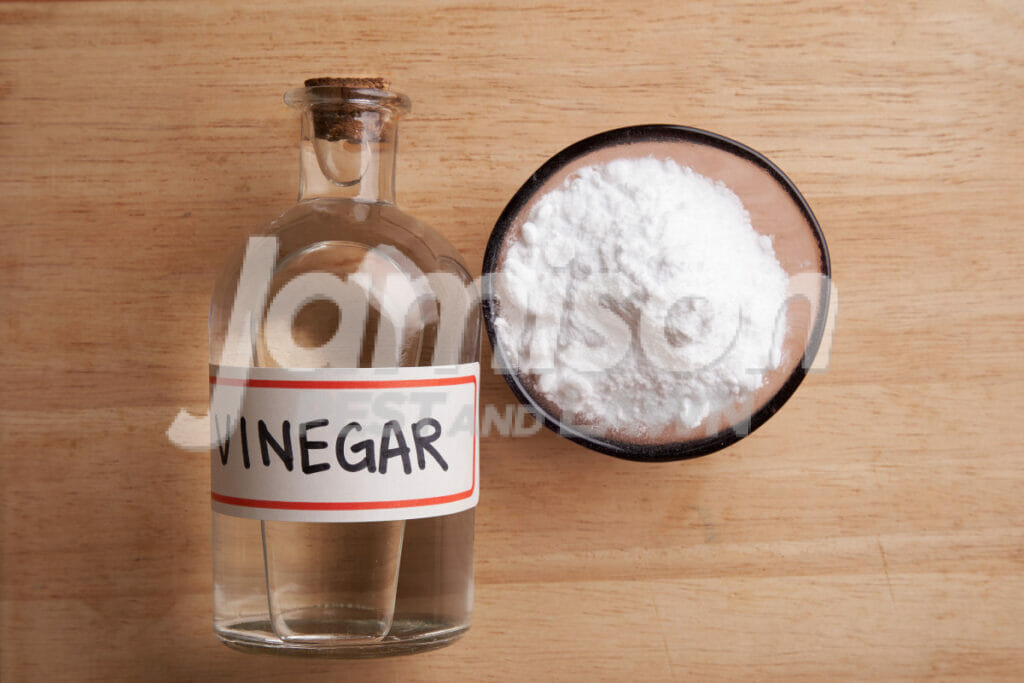
More Time-Consuming:
Implementing non-chemical treatments may require more time and effort than chemical treatments. This can be difficult for some homeowners. Also, they often take longer to take effect than chemical treatments
Higher Initial Cost:
Non-chemical treatments may have a higher initial cost than chemical treatments, especially if they require specialized materials or expertise.

Looking For New Construction Termite Treatment Services?
In conclusion, termite treatment options have come a long way in recent years. Preventative treatments are an excellent way to keep termites from entering your new home and can save you time, money, and stress in the long run. However, conventional treatments are often necessary if an infestation has already taken hold.
Irrespective of what your home requires, the Jamison Pest and Lawn team is here to help you. We offer the best new construction termite treatment in Tennessee.
- We have more than 77 years of experience in offering exceptional termite and pest control services.
- Our team is fully trained, licensed, and insured for your benefit.
- We will be there throughout the entire process and will answer all your questions.
Get started on the first step by contacting us at (901) 452-1505 and scheduling your meeting.



